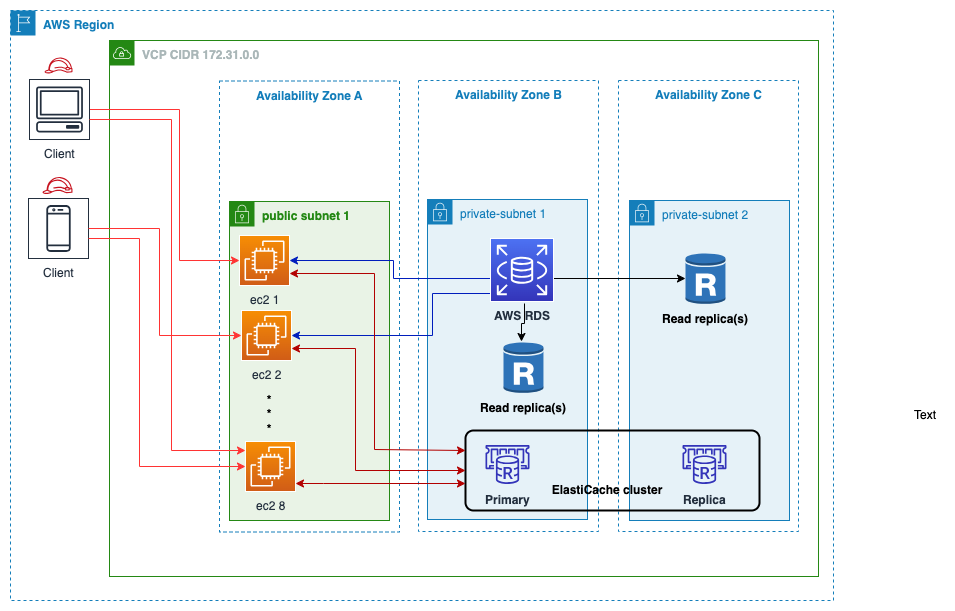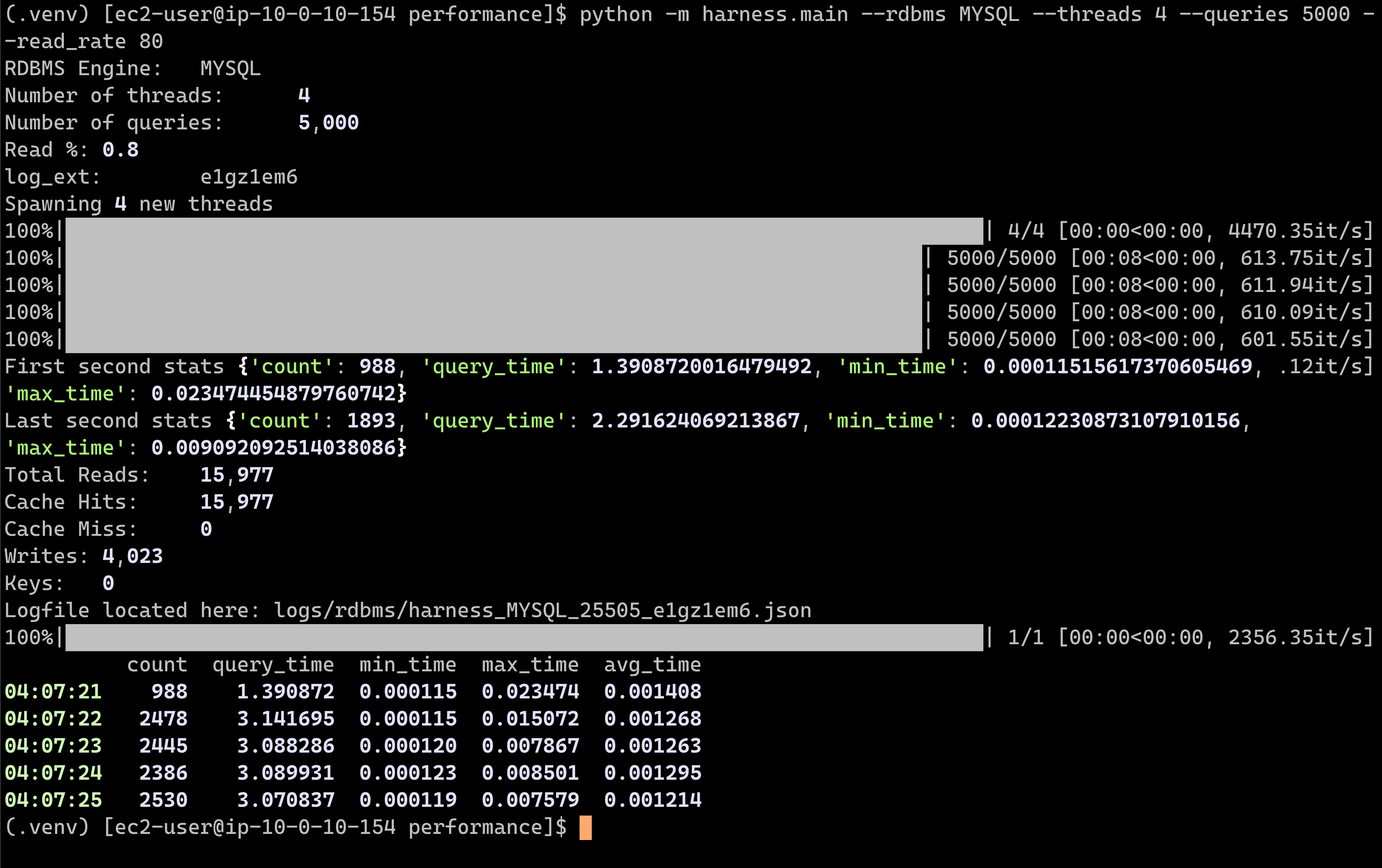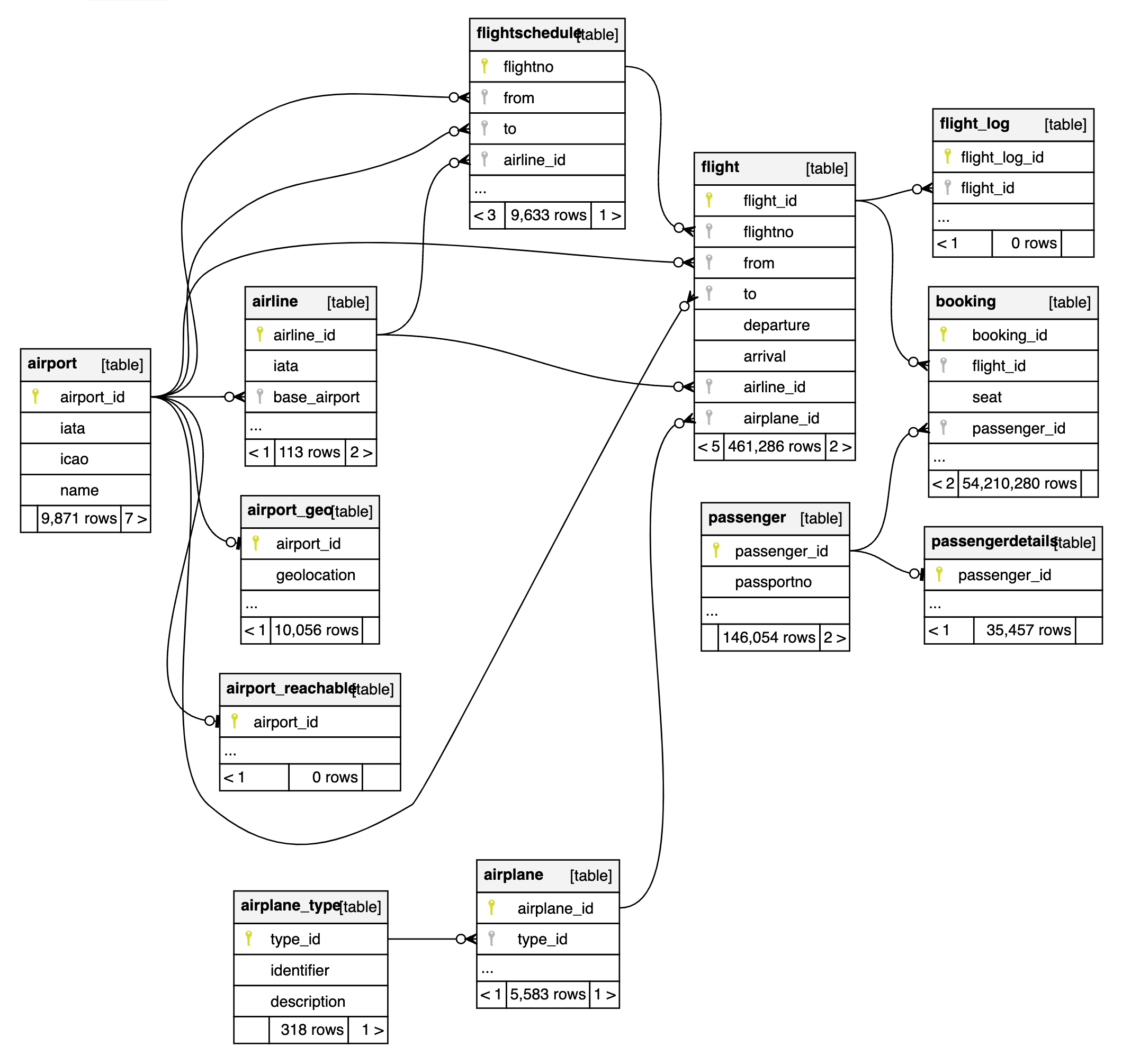Optimize cost, increase throughput and boost performance of Amazon RDS workloads using Amazon ElastiCache
The purpose of this project is to help you reproduce test harness of Relational Database Management Systems (RDBMS) like Amazon Relational Database Service (RDS) with and without a Cache such as Amazon ElastiCache.
In-memory caching improves application performance by storing frequently accessed data items in memory, so that subsequent reads can be significantly faster than reading from the primary database that may default to disk-based storage.
For practical purposes the data used for this test is the airportdb database with approximately 2GB in size and consists of 14 tables containing a total of 56 million records.
You can bring your own database and run your own queries as well to have an initial idea of the benefits caching can have over your specific workload.
The following Architecture diagram shows the test environment using Amazon Elastic Compute Cloud (EC2) as the compute layer where 1 or more instances can be used to send requests to our databases RDS + ElastiCache. For this particular test Amazon ElastiCache for Redis is used, but note that a similar test can be done using Amazon ElastiCache for Memcached.
Prerequisites
- Clone this repository
git clone git@github.com:aws-samples/amazon-elasticache-caching-for-amazon-rds.git
cd amazon-elasticache-caching-for-amazon-rds- Deploy the Infrastructure
cd infrastructure
# Create a Python environment
python3 -m venv .venv
source .venv/bin/activate
# Install required packages
pip install -r requirements.txt
cp .env.example .env- Modify
.envwith Accound and AWS Region
AWS_ACCOUNT=<your_AWS_account_id>
AWS_REGION=<your_AWS_region>
- Run CDK deployment
cdk bootstrap
cdk synth
cdk deploy -c keyName=<your_keypair>Prerequisites
- Python 3.8+
- EC2 Instace with access to an ElastiCache and RDS clusters
-
Log into the Bastion Host EC2 instance
-
Clone this repository
git clone git@github.com:aws-samples/amazon-elasticache-caching-for-amazon-rds.git
cd amazon-elasticache-caching-for-amazon-rds- Configure performance test
cd performance
# Create a Python environment
python3 -m venv .venv
source .venv/bin/activate
# Install required packages
pip install -r requirements.txt
cp .env.example .env- Configure
ElastiCacheandRDSdetails from the secret manager and cloudformation outputs on the.envfile
ELASTICACHE_HOST="<dns_configuration_endpoint>"
ELASTICACHE_PORT=6379
MYSQL_HOST="<dns_configuration_endpoint>"
MYSQL_DB="db_name"
MYSQL_USER="admin"
MYSQL_PASS="secret_password"
MYSQL_PORT=3306
- Run Harness Test
python -m harness.main --rdbms MYSQL --threads 4 --queries 1000000 --read_rate 80The output in the console should look similar to the following screenshot:
This work is based on the FlughafenDB by Stefan Proell, Eva Zangerle, Wolfgang Gassler, which is licensed under the Creative Commons Attribution 4.0 International (CC BY 4.0) License. To view a copy of this license, visit https://creativecommons.org/licenses/by/4.0/ or send a letter to Creative Commons PO Box 1866, Mountain View, CA 94042.
FlughafenDB. (2015). Stefan Proell, Eva Zangerle, Wolfgang Gassler. www.flughafendb.cc. https://doi.org/10.5281/zenodo.3968361
See CONTRIBUTING for more information.
This library is licensed under the MIT-0 License. See the LICENSE file.


